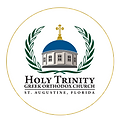
CULTURAL HERITAGE
Greek culture encompasses the language and customs, as well as literature and art, religion and other aspects that make up what we know today as the Greek way of life.
Greece is a crossroads of ideas, customs, languages and knowledge for people in southern Europe and the eastern Mediterranean since antiquity.
Greece's cultural heritage can be described as largely based on a skillful reshaping of elements from Ancient Greek imagination, Byzantine glories and European Modernity that form a cosmopolitan spirit of modern Hellenism.
Apokries
The traditional carnival in Greece, Apokries, is one of the most beloved traditions in the country, celebrated before the
period of Great Lent, or “Sarakosti.” The word Apokries means abstention from meat,
because after that, the period of Easter Lent begins.
The event allows revelers to partake in all the food, dance, and celebration they can before the 40-day period of spiritual reflection begins.
The Greek Carnival Season traditionally gets underway 10 weeks before Greek
Orthodox Easter.
The characteristic of Carnival is disguising and wearing costumes and masks that offer
anonymity and freedom of expression. This festival dates back to Dionysos, the ancient
Greek god of wine, fun and fertility.
Annual Greek Festival
Each year, the Holy Trinity Greek Orthodox Church hosts the St. Augustine Greek Festival, a true labor of love by our parishioners and community volunteers.
The event provides an opportunity for our church to share our culture and faith with the local community.
The annual festival features authentic Greek cuisine, dancing, music, Church tours as well as a Greek market and bookstore.
Visit the Festival website for event details.
New Year
Vasilopita and the lucky coin is a Greek tradition to welcome the New Year.
Learn more about the history and its meaning by clicking here.
World Greek Language Day
World Greek Language Day, celebrated on February 9th, is a date officially designated by UNESCO to honor the Greek language's vast influence on global culture, philosophy, science, and democracy.
This event commemorates the death of Greece's national poet, Dionysios Solomos, and highlights the 40 centuries of unbroken tradition and vast contributions of the Greek language to humanity.
Fun Facts
Significance: Recognizes the Greek language's foundational role in Western thought, scientific terminology, and its unbroken 4,000-year history.
Official Recognition: UNESCO formally proclaimed this day in late 2025, following a proposal supported by numerous member states.
Celebrations: Events occur globally, including at UNESCO Headquarters in Paris, universities, and Greek communities worldwide.
Learn more by reading Fr. Maximos' article.
Greek Orthodox Easter
Greek Orthodox Easter, or Pascha, is the most important religious feast of the year, with customs and traditions that have been part of Christianity for two thousand years.
The 40-day period of Lent before Easter (Πάσχα-Pascha), the solemnity of Holy Week, the rich symbolism, and the unique traditions of Orthodox Easter make it very different from Easter as celebrated by Roman Catholics, Protestants, and other Western Christians.
The way Greek Orthodox Easter is observed by the faithful is so very different and includes different symbols used to commemorate the Resurrection. Orthodox Easter and the Easter of other Christian denominations are also observed on different dates.
Every Easter, Greeks thank and honor Jesus Christ who died on the cross for our sins, and we celebrate the miracle of the Resurrection, the rise of Jesus Christ from the dead, and the promise of an afterlife.
Click to learn more about Greek Orthodox Easter.


